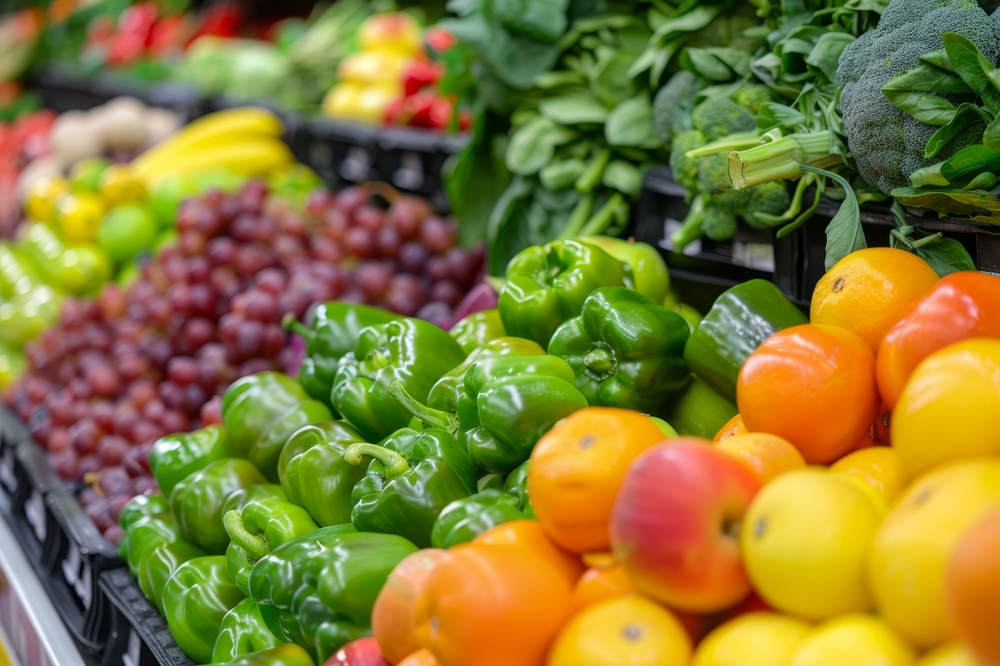New research led by the Centre for Healthy Brain Ageing at UNSW, published in Scientific Reports, highlights the potential protective role of fruit and vegetable consumption against depression. Utilising data from four international twin cohorts, the study addresses longstanding questions about the impact of diet on mental health by leveraging twin studies to minimise confounding factors.
Depressive disorders are a leading cause of disability in older adults. Prevalence appears to peak between the ages of 55 and 75 years, affecting around 7.5% of women and 5.5% of men. Depressive disorders can range from mild depression that does not reach the threshold of a clinical diagnosis but still negatively affects quality of life, to severe major depressive disorder. Social isolation and loneliness are key factors that significantly contribute to the risk of depression in older adults.
Over the past 15 years, evidence supporting an association between diet and depression has grown. For example, observational population-based studies have reported a reduced risk of developing depression with higher adherence to both the Mediterranean diet and an anti-inflammatory diet, showing reductions of 33% and 24%, respectively. However, long term intervention studies in this area are lacking. This may be due to challenges inherent in conducting such trials, including the inability to blind participants to food-based interventions and the difficulty of maintaining long term adherence to healthy behavioural changes.
Twin studies offer a unique opportunity to address a key limitation of previous observational studies, namely that associations may be influenced by residual confounding. By studying twins, we can reduce the impact of genetic factors and a range of environmental variables, such as education, socio-economic status and BMI, as these factors tend to be much more similar between twins than between unrelated individuals.

Research conducted
The study examined twins aged 45+ years from four countries — Australia, Denmark, Sweden and the USA — participating in the IGEMS consortium. Participants reported their fruit and vegetable intake using food frequency questionnaires, which were then harmonised across cohorts. Depressive symptoms were collected at baseline and during follow-up visits using validated depression measures.
Researchers investigated the relationship between fruit and vegetable intake and changes in depressive symptoms over a period of up to 11 years. Potential confounders accounted for in the analysis included age, sex, education, living alone status, BMI, physical health and cognitive ability. Physical activity data was not available, so it could not be considered as a potential confounder.
Research results
A total of 3483 participants provided data on baseline fruit and vegetable intake, along with depression data at baseline and at least one follow-up.
For fruit, high intake was associated with a modest reduction in depressive symptoms compared to low intake, while no difference was observed for moderate intake compared to a low intake. For vegetables, both moderate and high intakes were linked to lower depressive symptoms over time, with stronger effects seen for high intake compared to low intake.
Implications of the study
Although the observed benefits were modest, our findings provide additional evidence that higher fruit and vegetable consumption may help reduce depressive symptoms. Specifically, individuals with a high intake of fruit (2.1 servings/day) compared to a low intake (0.3 servings/day) experienced a 1.6% reduction in depressive symptoms. For vegetables, a high intake (2.0 servings/day) versus a low intake (0.5 servings/day) was associated with a 1.5% reduction in depressive symptoms. However, total fruit and vegetable consumption in the “high” category still fell significantly below the dietary recommendations of most countries. Intakes in the two large Scandinavian cohorts were particularly low, with the average for both groups being less than half the World Health Organization’s recommendation of at least five serves per day. It remains unclear what the reduction in depression scores would be if intakes were increased to recommended levels. Additionally, participants in this study generally had low baseline levels of depressive symptoms. Future studies in clinically depressed populations may provide more insight into the strength of these associations.
The exact mechanisms behind these benefits are still being explored. However, it is likely that the high levels of dietary fibre, vitamins and micronutrients in fruits and vegetables play a role in reducing inflammation and oxidative stress, both of which have been linked to depression. Understanding of the importance of the gut microbiome to mental health is increasing. Consumption of fruit and vegetables appears to beneficially impact the composition of the gut microbiome and help protect against oxidative damage to the brain.
Strengths and limitations
This study’s strengths include its twin design, which helps minimise confounding factors, and its longitudinal approach, reducing the risk of reverse causation. The large sample size and inclusion of participants from four countries further strengthen the findings. However, some limitations exist, such as the lack of physical activity data and the reliance on self-reported measures for diet and depression.
Conclusion
This study contributes to the growing body of evidence suggesting that higher fruit and vegetable intake may help protect against depression. While the effects were modest, they present another argument for increasing intakes and should be considered along with other potentially protective factors for depression such as physical activity, social participation, engagement in hobbies and quality sleep. The introduction of food prescriptions in primary care settings could be a promising strategy to improve dietary intakes.
Dr Annabel Matison is a Postdoctoral Research Fellow at the Centre for Healthy Brain Ageing (CHeBA) at UNSW Sydney, whose research focuses on the interplay between social determinants of health and ageing, particularly in relation to dementia. She completed her PhD at UNSW in 2024, exploring the connections between nutrition, genetics, and depression in older adults, and holds a Master of Human Nutrition from Deakin University.
Dr Karen Mather is a Senior Research Fellow at the Centre for Healthy Brain Ageing (CHeBA) at UNSW Sydney, and Leader of CHeBA’s Genomics and Epigenomics Group, which aims to provide insights into the biological processes underlying ageing, age-related decline, and disease from a genetics and epigenomics perspective. Dr Mather attained Honours degrees in both Biochemistry and Psychology and completed her PhD in Psychology at the Australian National University in 2009.
Simone Reppermund is a Scientia Associate Professor at the Centre for Healthy Brain Ageing (CHeBA) at UNSW Sydney, with a research focus on improving the health outcomes of older adults, particularly in the context of dementia. With a background in Neuropsychology, she is developing a tool to assess daily living activities and exploring social determinants of health to address brain health inequities and enhance quality of life for older adults.
The statements or opinions expressed in this article reflect the views of the authors and do not necessarily represent the official policy of the AMA, the MJA or InSight+ unless so stated.
Subscribe to the free InSight+ weekly newsletter here. It is available to all readers, not just registered medical practitioners.
If you would like to submit an article for consideration, send a Word version to mjainsight-editor@ampco.com.au.

 more_vert
more_vert
I totally agree with your results
Those who know the production of serotonin, dopamine, adrenaline, nor adrenaline are dependent on sufficient supplies of Vitamin c in the Adrenal Medulla etc , will not be surprised. As a retired psychiatrist, when practicing , I tested my patients for Vitamin C. 25% had undetectable levels, 50% had detectable, but inadequate levels, 25% had adequate levels. In my experience, supplementation of 1000 to 2000mg daily raised the levels to the desired range. So it is unsurprising to me that your study found a benefit of eating more fruit and vegetables, even though the benefit was merely 1.6%….which is hardly earth shattering. I don’t have the time and space for exolling the extensive and varied consequences of inadequate vitamin C on diseases and aging, but there is clear evidence of it on the importance, and necessity for neurotransmitter production.